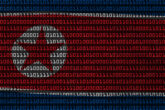May 30, 2019
Time to Abandon Denuclearization?
The U.S. objective of a nuclear weapons free North Korea has thus far failed. Yet denuclearization—the elimination of North Korea’s nuclear weapons, the means to produce and deliver them, and its other WMD—has remained a sticky concept among successive U.S. administrations. To its credit, the policy has resulted in a strong international consensus against the North’s nuclear and missile activities and, relatedly, a robust sanctions regime. But using those accomplishments as the key measures of success confuses means with ends. Since its first nuclear test over a decade ago, North Korea’s arsenal has expanded qualitatively and quantitatively. It now possesses ICBMs, thermonuclear weapons, and a growing nuclear and missile stockpile. Thus, denuclearization as a policy has a lot to answer for.
But what are the alternatives? Are they any better? And are there risks of moving away from denuclearization as the goal?
On the one hand, deterrence and assurance are still feasible and desirable. Decoupling fears raised by North Korea’s ability to deliver a nuclear weapon to the United States and Pyongyang’s possible threats to use nuclear weapons for coercion and blackmail are valid concerns. The U.S. extended deterrent and its alliances with Seoul and Tokyo provide adequate foundations to adapt responses to address these potential new vulnerabilities. But what policy goal should the United States pursue while it works to prevent nuclear and conventional war on the peninsula, if not denuclearization?
Read the full article on the Council on Foreign Relations' Asia Unbound blog.
More from CNAS
-
Assessing the Terror Threat Landscape in South and Central Asia and Examining Opportunities for Cooperation
Watch...
By Lisa Curtis
-
Indo-Pacific Security / Energy, Economics & Security
What Will North Korean Cybercrime Look Like in 2022?North Korean hackers will likely continue to employ more phishing campaigns in the future while tailoring their level of obfuscation based on the target’s sophistication....
By Jason Bartlett
-
Duyeon Kim testifies before European Parliament's Committee on Foreign Affairs
Chairman McAllister, Vice Chairs, DKOR Chairman Mandl, and distinguished Members of the Committee on Foreign Affairs and the European Parliament, thank you for the opportunity...
By Dr. Duyeon Kim
-
China’s New Land Borders Law Is a Nightmare for North Korean Refugees
A combination of high-level pressure from foreign governments and steady support for grassroots refugee resettlement organizations and programs is the most practical way to as...
By Jason Bartlett


